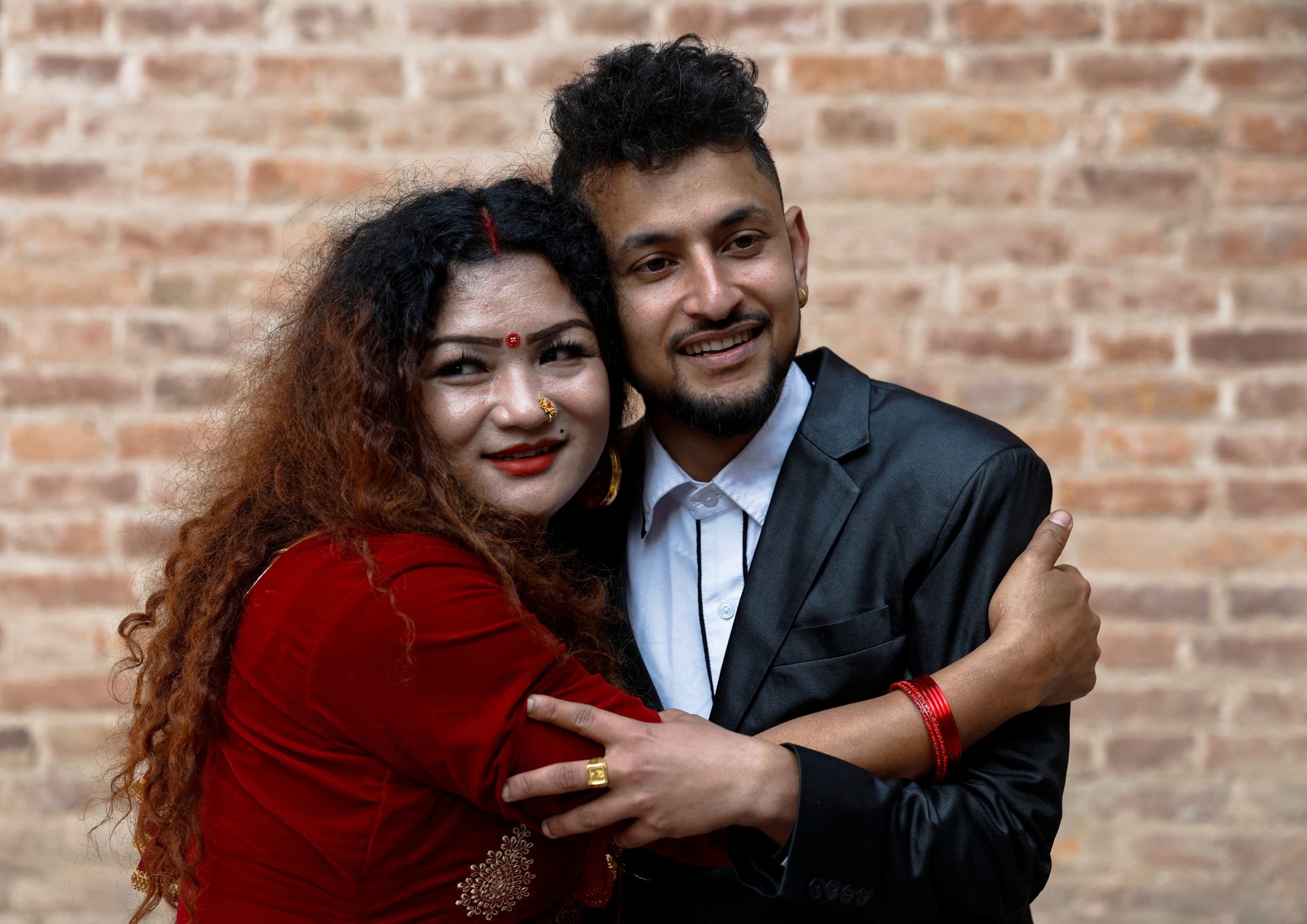
Queer-friendly Nepal aims to promote ‘pink economy’, ‘rainbow marriages’ for tourists seen as growing segment
- Nepal has introduced measures ranging from regulatory changes to ‘rainbow tourism’ guidelines as it targets the multibillion-dollar LGBTQ market
- Tourism experts say Nepal should not be ‘pinkwashing’, or profiting from LGBTQ issues, without making meaningful contributions to the community
In November, Maya Gurung and Surendra Pandey made history by becoming the first queer individuals in Nepal to officially register their marriage.
Through their newly founded non-profit group Maya Ko Pahichan – which loosely translates as “recognition of love” – they aspire to attract more LGBTQ travellers as they, and other tourism entrepreneurs and officials in the country, attempt to tap into the multibillion-dollar global market serving this growing customer segment.
“If we promote Nepal as a queer-friendly destination, it will benefit both the LGBTQ community and the country,” Gurung said. “Our marriage has sent a positive message for all queer travellers wanting to visit Nepal.”

Nepal has long lured visitors with its majestic mountains and rich cultural heritage, with thousands of people travelling to the country every year for trekking and sightseeing. While there is no data available on the number of LGBTQ travellers visiting Nepal, tour operators, activists and government officials say Nepal’s progressive laws make it a safe and welcoming destination for queer visitors.
Gurung, a transgender woman, and Pandey, who identifies as a gay man, were able to register their marriage in the Lamjung district, following two failed attempts to do so in Kathmandu.

After the loosening of pandemic-era travel restrictions, the country’s much-battered tourism sector is aiming to increase the diversity of visitors. Tourist couples with double income and no kids – known as DINKs – and others with high-spending power could provide a boost to Nepal’s tourism industry, travel experts said.
Global revenue from the LGBTQ tourism market is projected to rise to over US$610 billion by 2032, according to consultancy and market research firm Reports and Insights. Many global businesses are investing in LGBTQ-specific travel products and hospitality services to tap into the “pink economy”.
“There’s so much Nepal has to offer – we can market Nepal as a gay-friendly country,” said Nandini Lahe-Thapa, senior director at the Nepal Tourism Board, during an event to discuss the prospects for rainbow tourism in Nepal last month. “It’ll be a great step forward for Nepal’s tourism. It’s an untapped market.”
Indonesian host’s discrimination adds to anxieties of LGBTQ folk ahead of poll
Nepal is also seen as a safe destination for queer travellers, with the country ranking 44th out of 203 countries and regions in the 2023 LGBTQ Travel Safety Index. In addition, the Himalayan nation is gearing up to host an international conference to promote rainbow tourism later in the spring.
Last year, the Nepal Tourism Board collaborated with the Nepal Mountaineering Association to organise the first-ever trekking guide programme for local LGBTQ individuals. The first cohort of 25 trekking guides will soon be available to help queer travellers.
Many tourism entrepreneurs say Nepal should also capitalise on its open culture and promote “rainbow marriages” as a tourism product so visitors can celebrate their relationships through ceremonies and other events.
Nepal’s older LGBTQ people still feel ‘invisible’ despite rights progress
Such weddings have been successfully organised previously in the country.
In 2011, Sunil Babu Pant, an openly gay Nepal parliamentarian and gay rights activist, floated the idea of gay tourism in the country. As part of that campaign, he organised a traditional Hindu wedding ceremony for US couple Courtney Welton-Mitchell and Sarah Welton-Mitchell at a temple in Kathmandu.
Courtney said the couple decided to marry in Nepal to support the human rights of LGBTQ Nepalis, and thought “it would be meaningful for Nepalis and others to see a Hindu priest performing a same-sex marriage ceremony”. However, she noted that many queer individuals in Nepal still face challenges outside larger cities due to their sexual orientations and gender identities.
While inclusive laws and a reputation for safety can provide a strong stimulus for LGBTQ travellers to visit a country, international tourism experts say these factors are not enough, noting that businesses must also be wary of “pinkwashing”, or attempting to profit from LGBTQ issues without meaningful contributions to the community.
A year after Singapore’s anti-gay law repeal, equality still ‘nowhere in sight’
John Tanzella, president of the International LGBTQ Travel Association, said countries need to make long-term investments in queer tourism. Merely displaying rainbow flags on business websites to attract “pink dollars” would not be enough, he said. Instead, entrepreneurs should educate stakeholders and develop inclusive hiring practices so that LGBTQ employees are visible and supported.
“The challenge is that it takes time to provide community education, build awareness campaigns, and develop brand loyalty,” Tanzella said. “LGBTQ travellers are savvy, and they are looking for genuine commitment and visibility.”
Kumar Parajuli, secretary of the Society of Travel and Tour Operators Nepal, agreed. He said the thinking behind LGBTQ tourism promotion is “very limited” and the travel industry should make more efforts in hiring and training more queer staff.
“It creates employment, and they can grow within the industry,” he said. “All we need now is proper guidance.”
Gurung from Maya Ko Pahichan said that, ultimately, the tourism sector should be a means to empower the LGBTQ community and also grow the broader economy. And she hopes that her and Pandey’s wedding can be the spark that helps realise that change.
“We just want LGBTQ people from all over the world to know that they’re welcome in Nepal,” she said. “You can come here and get married. It will create tourism and employment for people from our community. It will be a win-win for all.”

